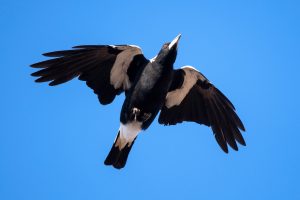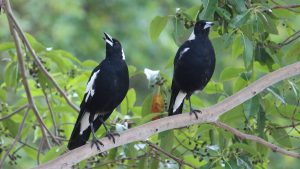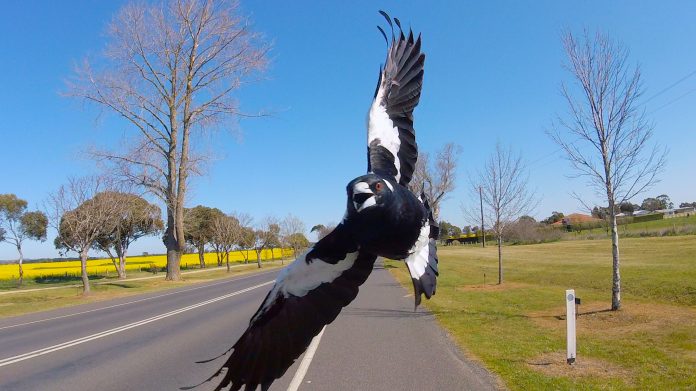Magpie breeding season has started on the Sunshine Coast and residents are being urged to be tolerant of the protected, native animal.
Sunshine Coast Council Natural Areas Conservation Officer Tyron de Kauwe said magpies were clever, remembering faces in their neighbourhood.
“Magpies are pretty amazing birds and in fact only 10 percent of breeding males will actually swoop,” Mr de Kauwe said.
“Magpies will often stay in one area for up to 20 years and can identify individuals by their facial features, even recognising all the people in their neighbourhood.
“When they walk around with their head tilted, they are actually listening for prey and are capable of hearing earthworms and larvae moving underground.
“Unlike other members of the Artamidae family, magpies walk along the ground. They do not hop.
“They are also extraordinary parents, looking after their young for up to two years.”

Mr de Kauwe offered the following tips on staying safe during swooping season.
Follow us on Facebook: www.facebook.com/scnews2020/
“Swooping begins once the eggs are hatched and ends once the chicks have left the nest, which is about six to eight weeks,” Mr de Kauwe said.
“When you see male magpies defending their territory, understand they are merely defending their young.
“Move quickly through the area but do not run.
“Wear a wide-brimmed hat, sunglasses or use an umbrella.
Like stories that inform, connect and celebrate the Sunshine Coast? So do we. Join an independent local news revolution by subscribing to our free daily news feed: Go to SUBSCRIBE at top of this article to register.

“Dismount and walk your bike and, where possible, walk in groups – or avoid the area altogether.
“Don’t act aggressively towards them as they have a very long memory, and this will just encourage further defensive behaviour in the future.
“Most importantly though, take a moment to appreciate the complex carolling of one of Australia’s most iconic birds – our humble magpie.”
Magpies are protected under the Nature Conservation Act. Penalties for injuring magpies vary based on circumstances.





